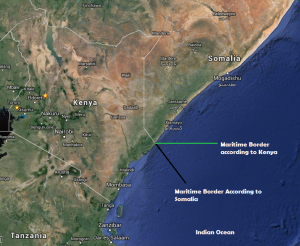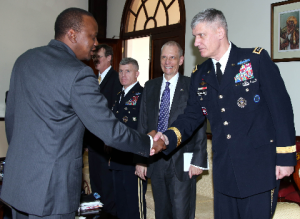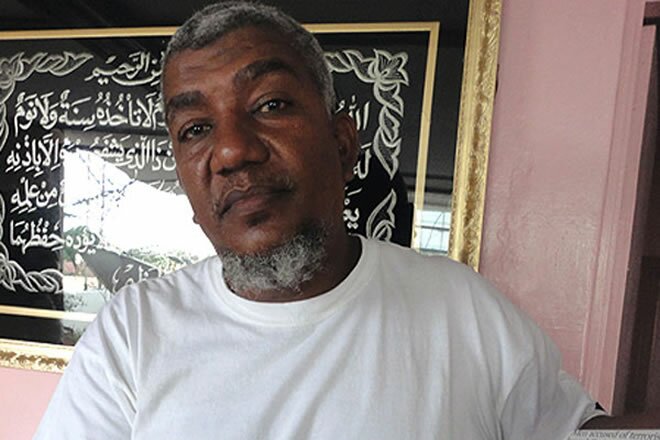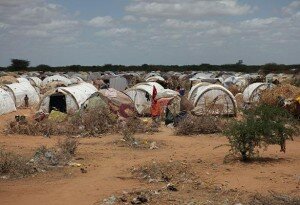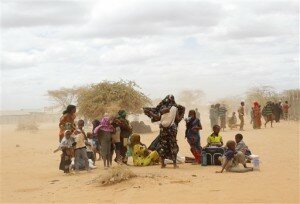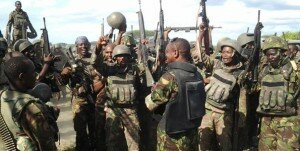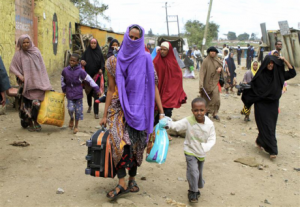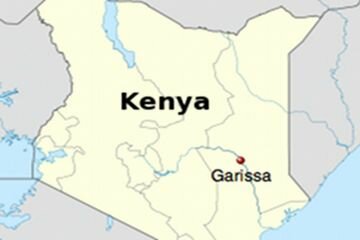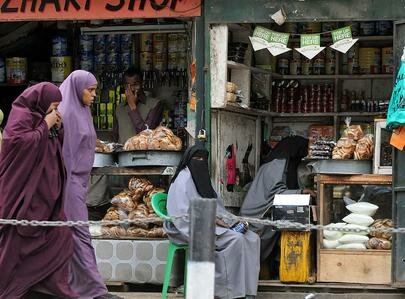Somali conflict rattles Kenya
This included dozens of illegal residents who had fled the fighting of their homeland and blended into this largely Somali enclave known as “Little Mogadishu.”
But the raids also swept up Kenyan citizens, who had never visited the country of their ancestry, and Somalis with visas and citizenship from Canada, the United States or European countries.
Kenyan Mohammed Ibrahim was near one of Eastleigh’s mosques when police arrived and stood his ground while others fled. When the officer demanded proof of his citizenship, Ibrahim could tell from the constable’s accented English that his native tongue was Luo, a dialect from western Kenya.
Ibrahim replied in Luo: “You are targeting my community. What’s your problem?”
The officer responded, “No problem,” and walked away.
Ibrahim, 30, was one of the few who escaped the dragnet. More than 400, including at least 13 members of Somalia’s parliament, were taken into custody Jan. 17 and spent the night in jail. Kenya security ministers defended the raids and said they were conducted lawfully.
The sweep – and violent downtown demonstration two days earlier by more than 100 Muslim protesters – underscores the tension here, as problems in neighbouring Somalia threaten the stability of the Horn of Africa.
After a year in power, Somalia’s UN-backed transitional federal government still struggles for credibility and holds power in only a small area of Mogadishu. Protected by a 5,300-strong African Union mission, both government forces and AU peacekeepers are battered daily by al Shabab, an Islamic insurgency that Washington has labelled a terrorist group
Nairobi has recently been on high alert as al Shabab has vowed to attack the capital. Kenya has also become a key transit point for foreign fighters lured by Internet propaganda to join the Shabab. The group’s prized Western recruits are difficult to detect in Kenya, as they usually enter the country legally as visitors, then slip across the largely unguarded border into Somalia.
Five young Toronto men disappeared last fall after coming to Nairobi and are believed now to be among al Shabab recruits. One of the youths reportedly called home and told frantic relatives not to expect his return.
Mohammed Sheikh Abdullah, a 25-year-old former Shabab member who recently defected and is under protection with Somalia’s struggling transitional government, said he doesn’t know the Toronto youths but had met many Canadians and Americans.
“There are white Canadians and Somali Canadians,” he said in an interview with the Toronto Star last week inside Mogadishu’s guarded presidential compound, known as Villa Somalia.
He claims one “white Canadian,” who goes by the name Ayottola Ali Jacob, is fighting on the front line. Abdullah said the group is keen to attract followers from the West because they elevate the status of the network from a local fight to part of a greater global struggle.
He said a fighter by the name of Idris Mohamud Barkhadleh, or “Abu Wajir,” acts as a recruiter for foreigners. Abu Wajir is Kenyan, of Somali heritage, and fluent in English, Swahili and Somali. He is the “focal point” for these recruits and arranges logistics of their arrival.
“This man is the brainchild of bringing children of Somali origin here,” Abdullah said.
His title, or kunya, indicates Barkhadleh is from the northeastern Kenyan province of Wajir, which could make him a key asset in getting foreigners across the border.
Abdullah said Abu Mansour al Amriki (an American) is also influential among foreigners and boasts of direct connections to Osama bin Laden. The U.S. convert to Islam (whose real name is Omar Hammami and was raised Baptist) lived for a year in Toronto in 2004, where he reportedly ingratiated himself in city’s large Somali community. His YouTube videos calling for foreign fighters are widely circulated.
The trend of Western recruits was first noted in Minneapolis, Minn., after at least 20 young men of Somali heritage disappeared in the last couple of years. Others have left Australia, Britain and Sweden, among other places.
A suicide bomber from Denmark reportedly carried out the devastating hit on a graduation ceremony for doctors at Mogadishu’s Shamo Hotel on Dec. 3, killing three government ministers and 16 others.
Abdullah says some of the foreigners are coming to the Horn of Africa for the first time and arrive unequipped to deal with the harsh conditions of Somalia. But once they’re in Shabab control it is difficult for them to leave.
Abdullah says if the foreigners reach Somalia they are most often destined to be suicide bombers, or trained, and then sent back to their home in case they’re needed there.
While the foreign fighters are among the most high-profile, it’s the many disenfranchised young men who live here that could swell al Shabab’s ranks or increase the potential of an attack inside Kenya. Although the border is closed, except to refugees, there are gaps.
Ibrahim, who escaped being scooped up in the raid here last month, says he saw the Shabab’s influence when he attended a Dec. 27 wedding near the Bula Hawa border crossing. Looking past the Kenyan post, he could see the Shabaab guarding their side.
In the Kenyan town of Mandera where he stayed the night with friends at a hotel, there’s a 9 p.m. curfew. He said late in the evening a truckload of Shabab arrived and asked who owned the K-series Toyota Land Cruiser parked outside.
“They told us to kneel down and then get on our belly. I just said, `Please, just give them the keys,’ and this guy pulled out the keys and said, `Here, take it,’” Ibrahim recounted during an interview at a coffee shop in the Eastleigh mall.
Ibrahim said he was so scared he urinated on himself and vows to not return to any border towns.
While few deny al Shabab is a growing threat – especially with international pressure on Yemen pushing fighters across the Gulf of Aden into Somalia’s mountainous Puntland region or various port towns under Shabab control – they question if Kenya’s tactics will make the problem worse.
Hussein Mohammed Arr, vice-chairman of the Eastleigh District Association, said he believes Somalis have been profiled here by police since the 9/11 attacks.
“We as Muslims in Kenya, we don’t have any sympathy with al Shabab. But I think our government will force us to.
“We are ready to fight for our rights, constitutionally. But people are very angry,” he said.
“When the government does something bad, al Shabab takes advantage of that.”
____
Toronto Star
Comments
comments
 Calendar
Calendar






